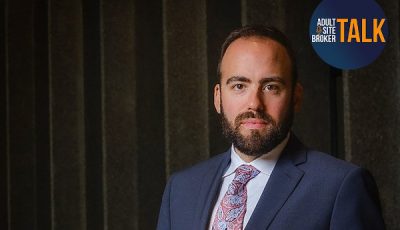Age Verification: Data Breaches Feared ‘Inevitable’
 The BBC reported today that the Open Rights Group — a grassroots, U.K.-based digital campaigning organization whose stated mission includes working to protect privacy and free speech rights online – fears the data breaches “inevitable” as age-verification begins to impact adult content consumption online.
The BBC reported today that the Open Rights Group — a grassroots, U.K.-based digital campaigning organization whose stated mission includes working to protect privacy and free speech rights online – fears the data breaches “inevitable” as age-verification begins to impact adult content consumption online.
Starting in April 2018, as part of the U.K.’s Digital Economy Act, people looking to access adult content online will have to prove they are aged 18 or over. The regulation is intended to protect children from age-inappropriate sexual content.
Details of an age verification tool – AgeID — developed by piracy-based tube site purveyor, MindGeek, were revealed over the weekend. MindGeek, which runs sites including PornHub, YouPorn and RedTube, said AgeID has been in use in Germany since 2015.
Per the BBC, AgeID would be made commercially available to all porn sites accessible within the U.K. and would be offered free to independent U.K. studios, producers and bloggers. Once registered, users would be able to access multiple sites across multiple devices without logging in again, it said. MindGeek claimed it would not store any data itself, and also said its software would use “third-party age-verification companies” to authenticate the age of those signing in.
This, presumably, is where the Open Rights Group’s fears are rooted.
Per the BBC, Myles Jackman, legal director of the Open Rights Group, raised two concerns. First, while MindGeek had said it would not hold or store data, it was not clear who would. Further, by the simple act of signing in, people would also be revealing their sexual preferences.
“If the age verification process continues in its current fashion, it’s a once-in-a-lifetime treasure trove of private information,” the BBC reported Jackman saying. “If it gets hacked, can British citizens ever trust the government again with their data?”
According to the BBC, Jackman said age verification mandates would drive more people to use virtual private networks (VPNs), which mask a device’s geographical location to circumvent local restrictions, or the anonymous web browser Tor.
“It is brutally ironic that when the government is trying to break all encryption in order to combat extremism, it is now forcing people to turn towards the dark web,” Jackman was reported saying.
The notion that people will be “forced” to turn to the dark web is somewhat alarmist, if not fully off-mark. No one is “forced” to seek out adult content, much less on the dark web. Rather than fretting over what might be revealed if browser histories and/or verification histories are revealed, a more constructive approach to age verification would include tackling sex phobia and stigma related to sexual proclivities, as well as expanding sex education across age groups.













